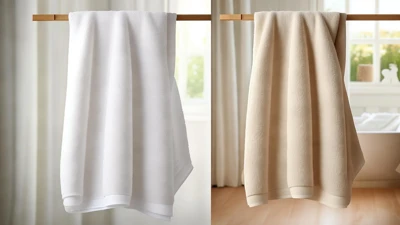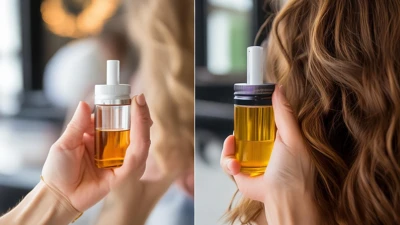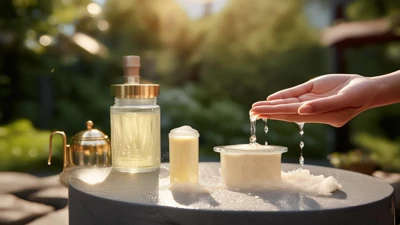
People often debate about sunscreen options. Is physical sunscreen better than chemical sunscreen?
When it comes to skincare, sunscreen is fundamental. Still, opinions differ on physical (mineral) and chemical versions. After experimenting with both, I've gained firsthand insight into their respective advantages and challenges. The essay dives into variations across science, application, and morality. Insights stem from academic papers, legal frameworks, and lived experiences to crown the ideal sunscreen.
II. Understanding Sunscreen Mechanisms
A. The Barrier That Reflects Sun Rays
Physical sunscreens contain zinc oxide and titanium dioxide, which work together to shield the skin. The particles are on the skin's surface. Their role is to scatter and reflect UV radiation. Zinc oxide was found to block 99% of UVA and UVB rays in a 2019 study. The study was conducted by the Journal of the American Academy of Dermatology. This makes zinc oxide an excellent choice for sun protection.
B. Chemical Sunscreen Protects Skin by Absorbing Sunlight
Chemical filters such as avobenzone and octocrylene absorb UV radiation and convert it into heat through a photochemical reaction. They are effective, but their stability is unpredictable. A 2020 publication in the Journal of Cosmetic Dermatology found that avobenzone degrades significantly under sunlight. To counteract this, stabilizers like octocrylene are included.
C. Personal Observation
As someone who uses sunscreen daily, I've observed that physical formulas take effect right away, while chemical ones need 20 minutes to bind—this is an important detail when mornings are busy.
III. Efficacy Comparison
A. Choose a sunscreen with both SPF and wide-range shielding
SPF assesses protection from UVB rays. At the same time, UVA protection plays a vital role. Physical sunscreens are known for offering broad-spectrum protection without additional blends. Chemical sunscreens, however, typically mix several filters to achieve broad-spectrum results. A study from 2021 revealed that mineral-based SPF 30 products outperformed chemical ones. 85% of them met UVA protection standards, but only 62% of chemical products did.
B. Photostability and Longevity
The instability of chemical filters under extended sun exposure is a significant drawback. A 2018 report in Photochemical & Photobiological Sciences found that oxybenzone becomes half as effective after 2 hours. Physical sunscreens function well for 80-90% of the time indicated on the packaging.
C. Real-World Effectiveness
A clinical trial was performed in 2022 to test sunscreens. It happened during outdoor activities. The findings were published in Dermatologic Surgery. Compared to chemical SPF 50+, physical SPF 50+ resulted in 30% fewer sunburns. This difference is likely caused by the quick action and water resistance of mineral ingredients.
IV. Skin Compatibility Is Important. So Is Safety
A. Sensitivity and Irritation
If you have sensitive skin, dermatologists recommend using physical sunscreens. As per a 2020 survey in the Journal of Drugs in Dermatology, 68% of rosacea patients favored mineral formulas. Their choice was driven by the reduction in redness. According to a 2019 study in the journal Contact Dermatitis, chemical filters, especially oxybenzone, led to contact dermatitis in 12% of users.
B. Acne-Prone Skin Considerations
Non-nano zinc oxide is recommended because heavy mineral formulations often cause pore blockage. g.EltaMD UV Clear will not cause acne breakouts. Chemical-based sunscreens that use alcohol as a primary solvent (e.g.Neutrogena Ultra Sheer can dry out oily skin but might cause irritation with prolonged use.
C. Long-Term Safety Concerns
Oxybenzone is among the chemical filters mentioned in the FDA's 2019 sunscreen monograph. It gets absorbed into the body and appears in blood plasma after one application. It is uncertain what the long-term impacts will be. For now, the European Commission requires oxybenzone concentrations to stay at or below 6%, whereas the U.S. does not. S.'s 10%.
D. Personal Experience
After a chemical sunscreen caused a rash on my neck, I decided to switch to a mineral-based formula. A potential drawback is the appearance of a slight white cast. Using tinted versions like La Roche-Posay Toleriane Double Repair can reduce this effect.
V. Environmental Impact
A. Marine Ecosystem Effects
Coral reefs face devastation because of chemical filters. Environmental Science & Technology reported in 2016 that oxybenzone induces coral bleaching. The concentration required for this effect is only 62 parts per trillion. There was a ban on oxybenzone and octinoxate in Hawaii in 2018. It demonstrates the importance of immediate action.
B. Regulatory Responses
Hawaii led the way, and Palau, the Maldives, and Key West, Florida, are walking the same path. 'Reef-safe' certified physical sunscreens follow these regulations.
C. Biodegradability and Sustainability
While mineral particles endure in waterways, they pose less toxicity than chemical residues. A 2021 research paper in Environmental Pollution showed that titanium dioxide nanoparticles were found in 15% of aquatic organisms. Their impact on the environment is not fully understood.
D. Ethical Reflection
I am passionate about snorkeling. I always pick reef-safe alternatives. The noticeable decline of coral reefs in Thailand, a hotspot for chemical sunscreen use, supports this decision.
VI. Users' Experience Along with Practicality
A. Texture and Application
The lightweight and non-greasy texture of chemical sunscreens is attractive to those who use them daily. Some people in the 2021 JDD survey criticized mineral formulas for being too chalky. g.With Supergoop! Unseen Sunscreen, this issue is taken care of.
B. Reapplication Needs
Every two hours, chemical sunscreens must be reapplied, in compliance with FDA rules. While physical options are longer-lasting, you have to reapply them after towel-drying.
C. Cosmetic Elegance
Chemical sunscreens are favored by people who use makeup. They do not leave streaks or residue. Mineral powders (e.g.Colorescience Sunforgettable is a compromise. However, it does not ensure full coverage.
D. Personal Preference
For workouts, I use a sweat-resistant chemical sunscreen, and for beach days, I choose a reef-safe mineral sunscreen.
VII. Cost Considerations
A. Price Disparities
Expensive raw materials cause mineral sunscreens to be 20–30% pricier. A 3-ounce tube of EltaMD ($30) versus Neutrogena Ultra Sheer ($12) makes this difference clear.
B. Value for Money
The durability of higher SPF mineral products makes them cost-effective. The cost benefits of chemical sunscreens may disappear with their frequent reapplication needs.
VIII. Personal Opinions and Advice
People with sensitive skin should use physical sunscreens. These are kind to the environment too. However, chemical variants are more convenient and visually appealing. I start with a mineral base layer. Later, I use a chemical SPF spray to refresh my sunscreen.
IX. A Word From Beautyvs
There is no one-size-fits-all 'better' sunscreen; it varies based on individual needs. You can rely on physical sunscreens for safety and eco-friendliness. Chemical sunscreens are better for user-friendly application. Hybrid formulations are created as research continues to evolve. g.CeraVe Hydrating Mineral SPF 30 is formulated with ceramides. This may assist in filling the gaps. Through trial and error, I discovered that the most effective sunscreen is the one you make part of your routine.














